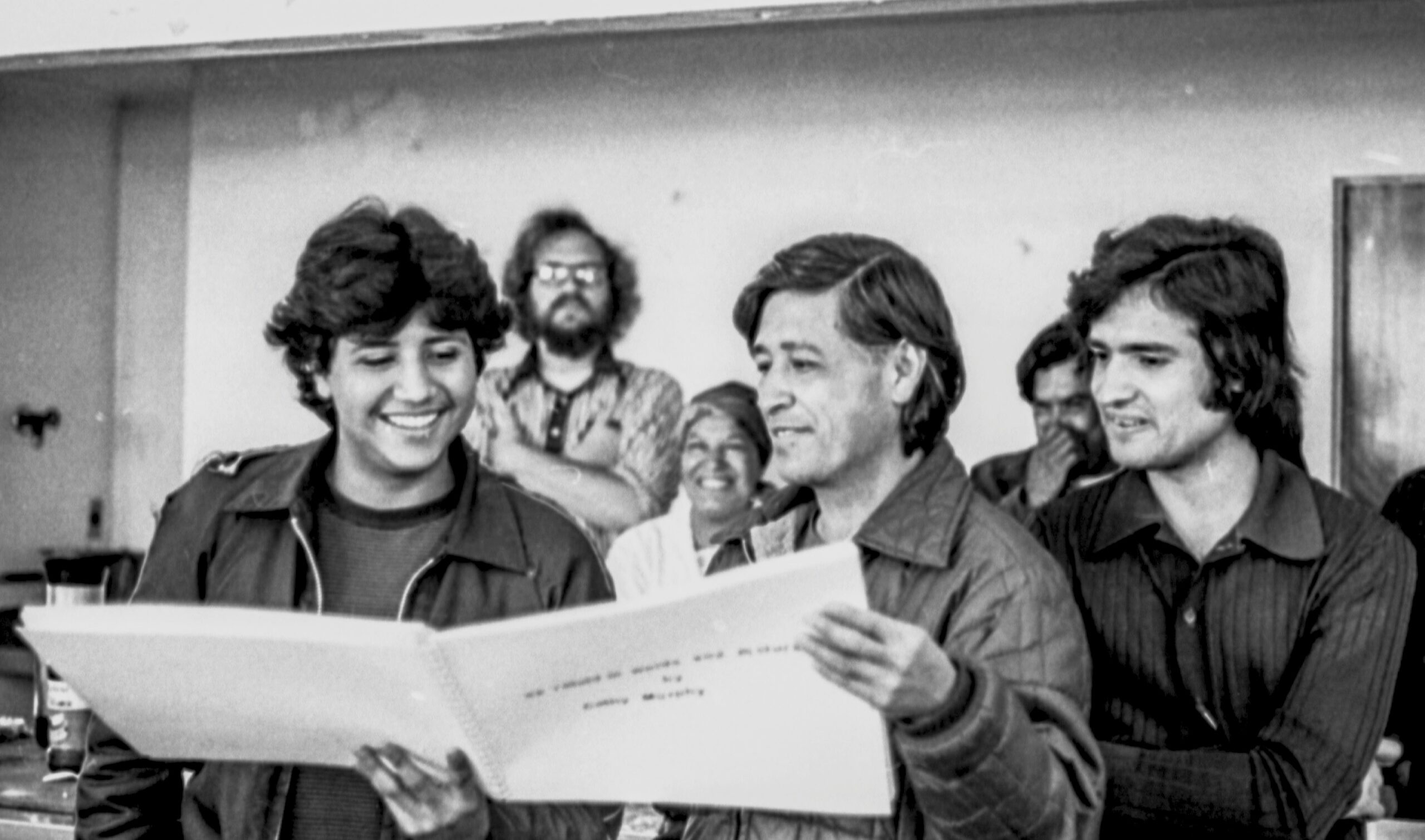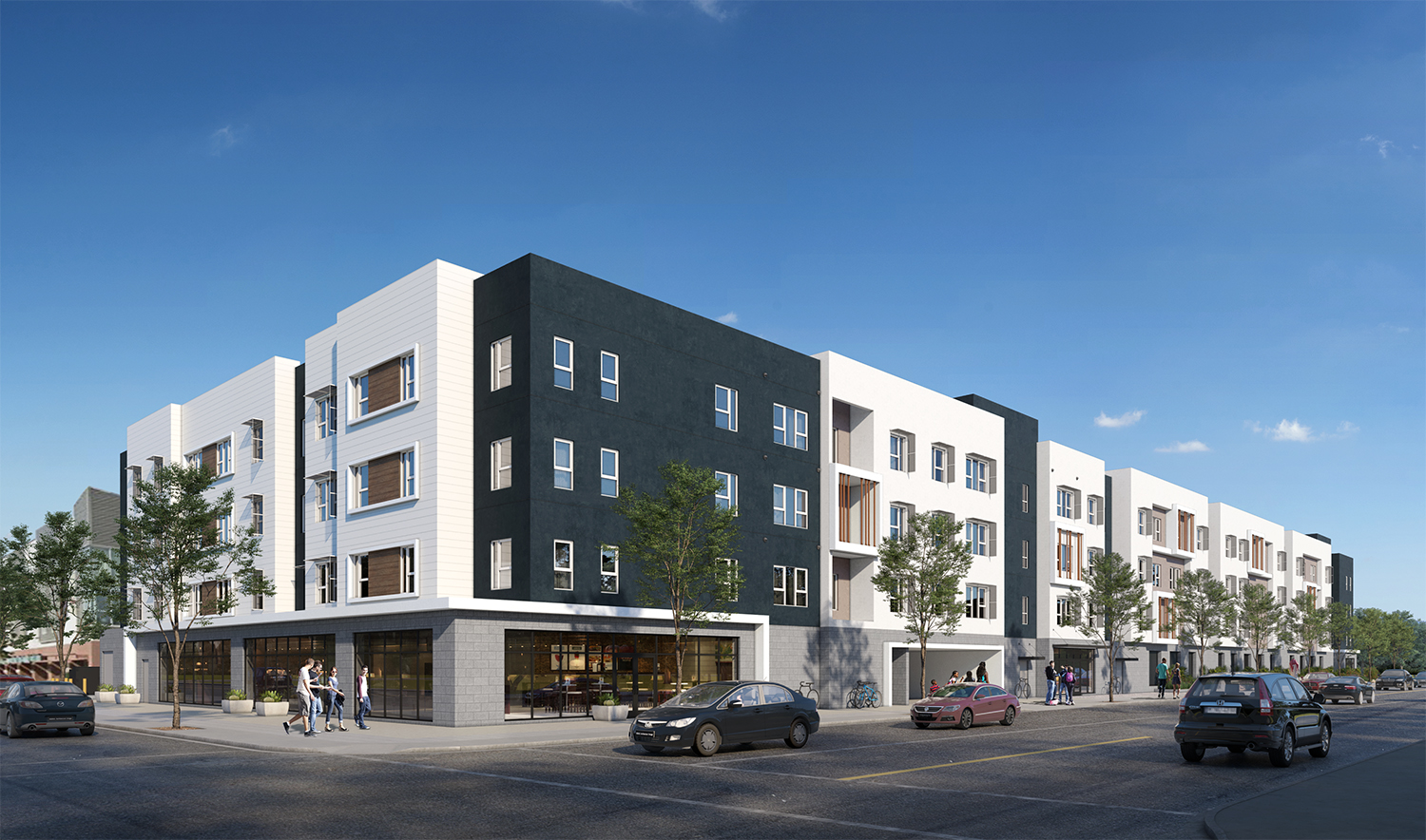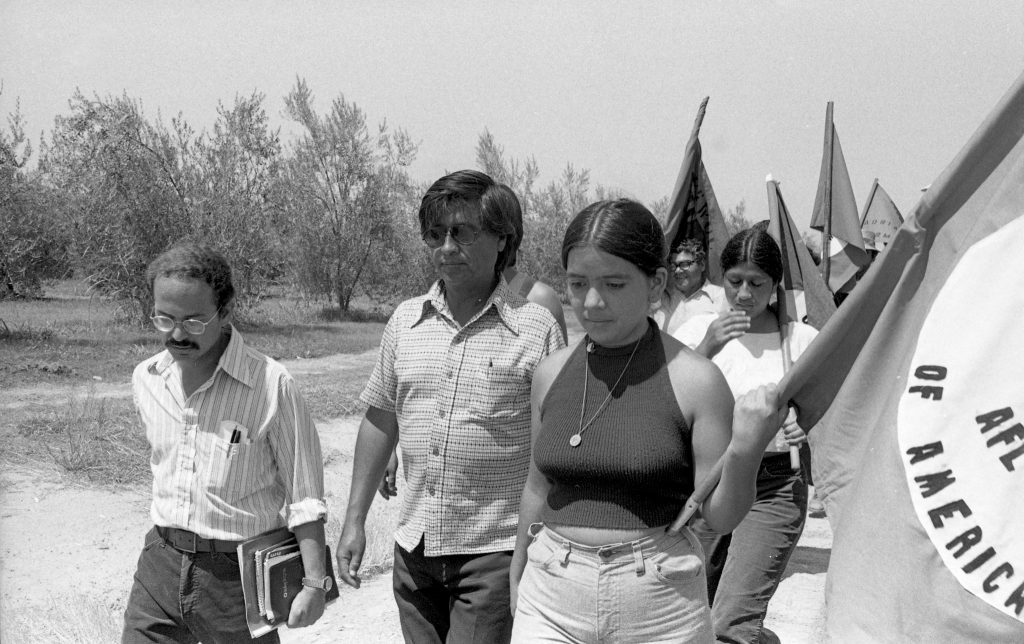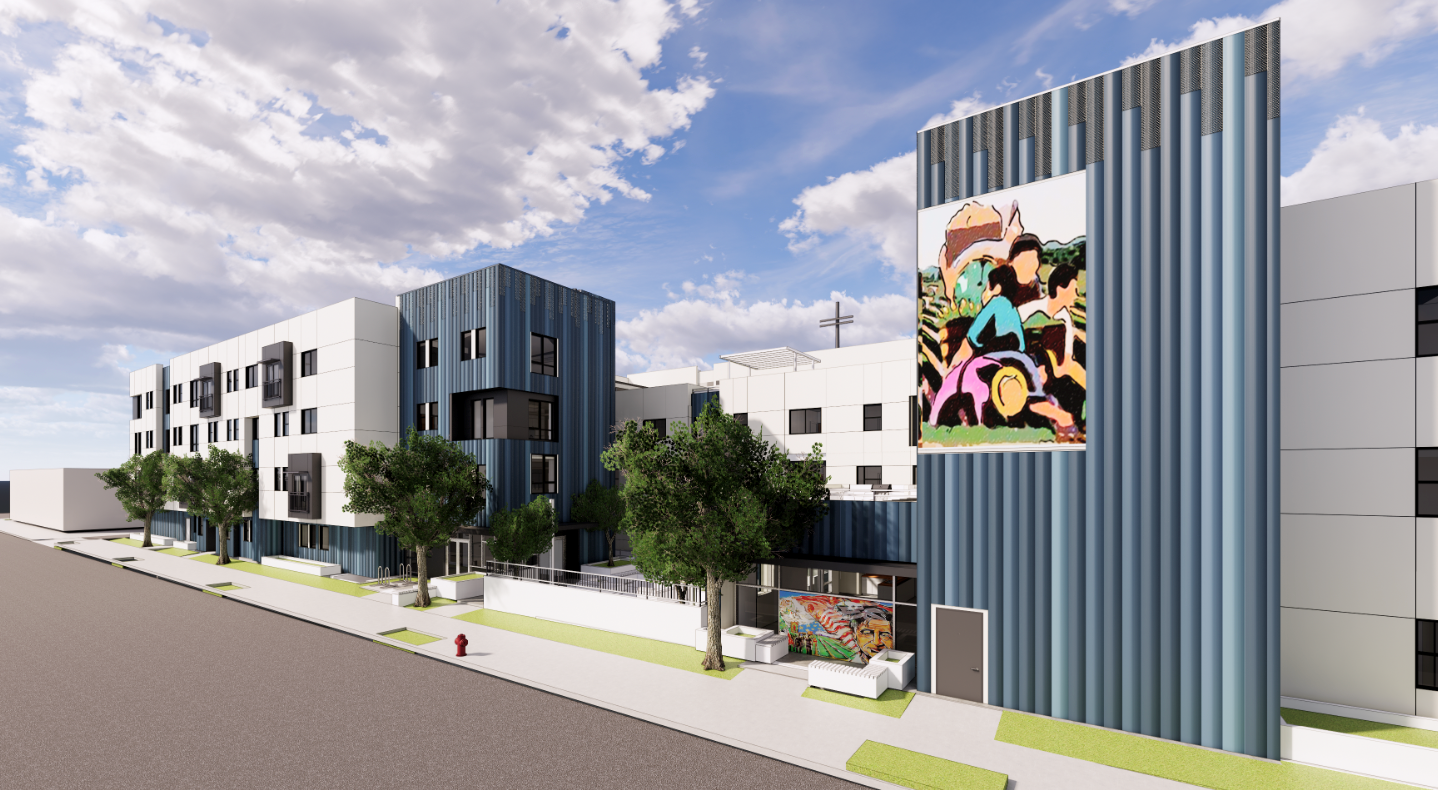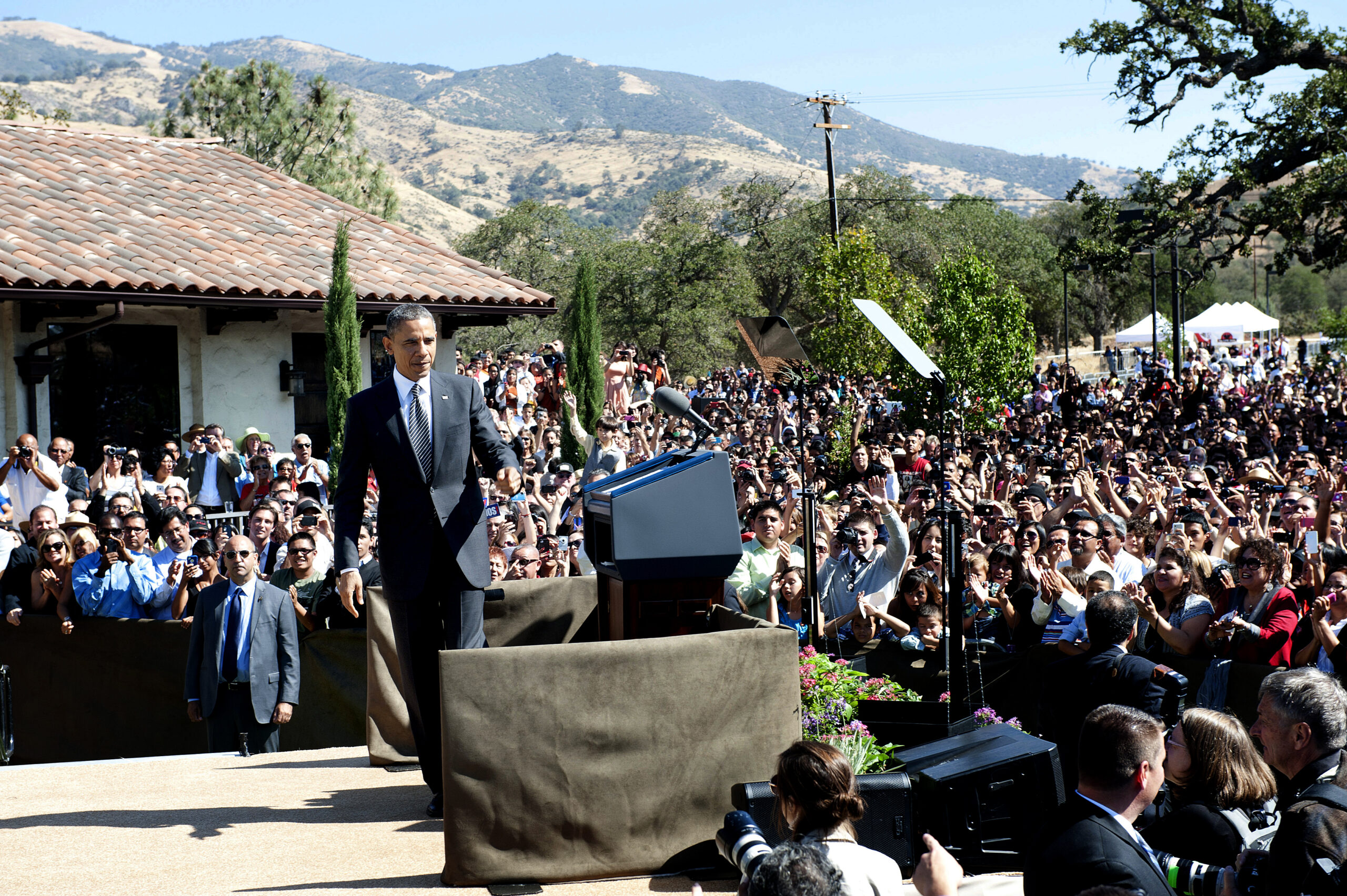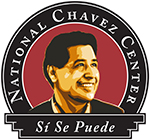To honor both Hispanic Heritage Month and Filipino American History Month, Stop AAPI Hate spoke with Marc Grossman, spokesperson for the Cesar Chavez Foundation, on the legacy of cross-racial solidarity between Filipino and Mexican-American farmworkers. In the interview, Grossman shared his personal experiences with Cesar Chavez and the movement, as well as how the Foundation continues to promote and uphold social justice and cross-racial solidarity. Keep reading for their full conversation:
How did you meet César Chavez?
Marc: I came of age, socially and politically, in the 1960s. I did my undergraduate work in American history at the University of California, Irvine. Farm labor history was something I took an interest in. I guess at some point, I figured out that it would be a lot more interesting to be a part of history than to just read about it.
This was during the time of the Delano Grape Strike and Boycott — and so, after class and on weekends, I picketed supermarkets. I’d join car caravans bringing food and clothes to the striking workers in Delano. The first time I met César was at Filipino Hall, where the caravans ended up. But I really got to know him through his eldest son, Fernando; we’ve been close friends since we were both 19- or 20-year-old college students. I knew César the last 24 years of his life, and this is my 54th year with the movement.
What a time to be a part of the labor movement! Can you tell me more about César’s decision to join the Delano Grape Strike? At that point, what was the relationship between Latino and Filipino farmworkers?
Marc: To answer that question, you have to go back to 1962, when César Chavez, Dolores Huerta, Gilbert Padilla, and others started the NFWA — what became the United Farm Workers (UFW). You know, the genesis of their activism was not labor organizing. It was community organizing. And while they understood only a union could overcome abuses in the fields, they were also convinced that when the workers left the job site and returned to their communities, they faced crippling dilemmas having to do with race, language, and ethnicity. This was real discrimination and they believed it would take more than a union to overcome these dilemmas. It would take a movement.
The UFW helped pioneer several labor innovations. The first was solidarity between the races because they knew from studying history that the way growers broke field strikes and crushed unions was by pitting the races against each other. They used Latinos to break the Filipino strikes and Filipinos to break Latino strikes.
So, when Larry Itliong asked César and the UFW to join the picket lines, they didn’t think they had a choice. They insisted that grape strikers of both races share the same picket lines, the same union hall, and the same strike kitchen. That was unequivocal. It’s true — a few members of César’s union — Chicano nationalists — objected to joining the Filipino farmworkers, and asked to put it to a union vote. And César told them he believed in union democracy, but he didn’t think you should vote on whether or not to discriminate. He said, “you can have your vote — and I’ll quit and go join the Filipino union instead.” That was the end of the debate.
That is such a powerful anecdote — especially during a difficult time for race relations in the America of the 1960s. Tell me, what was the origin of the César Chavez Foundation when César Chavez and others created it under a different name, and what is the Chavez Foundation now?
Marc: Since César and his colleagues knew it would take a movement to redress abuses in the community, during the ‘60s César, Larry Itliong and others also founded what today is the Chavez Foundation, to transform communities.
It has built and renovated—and manages—close to 6,000 units of high quality affordable housing for families and seniors over four states—nearly $1 billion invested in disadvantaged communities. It entertains, educates, and encourages community engagement through our Communications Group—nine radio stations in four states with more than one million listeners. It develops future leaders and helps close the achievement gap through educational programs, products, and services. And it runs the National Chavez Center to preserve and educate people about César’s legacy and values.
Does this mean César stopped working with Filipino farmworkers after the strike was over?
Marc: Not at all. From the beginning, the UFW and César Chavez Foundation worked closely with Filipino farmworkers — the manongs. Are you familiar with the term?
No, what does that mean?
Marc: Well, most of the Filipino immigrants from that generation came to the U.S. in their teens and twenties in the 1920s and ‘30s. Since California’s racist anti-miscegenation laws banned inter-racial marriage and Filipino women were not imported, most were denied the right to marry, to have families, and most had no choice but to live as bachelors.
By the end of the five-year-long Delano Grape Strike in 1970, many of these men were in their sixties and seventies. Some did return to work under the protections of UFW contracts, but many were too old for farm labor. They had lived in farm labor camps for decades, were evicted during the strike, and had no decent places to live.
This gave rise to the Paulo Agbayani Retirement Village — the first ever retirement home for Filipino farmworkers built by the farm worker movement on our Forty Acres property in Delano in 1973-74. It was built with all volunteer labor, including many Asian American college students, some who volunteered days, weeks, and months of free labor. There’s a plaque on the wall of the recreation area with names of all of the volunteers who built it. Congresswoman Judy Chu from Los Angeles is on that plaque.
Wow, I had no idea. Tell me more about the village.
Marc: Many of the manongs — many veterans of the Delano Grape Strike — were able to live out the rest of their years in comfort and security. They had a garden where they grew their own vegetables, a recreation room, and an industrial kitchen that served three meals of Filipino cuisine every day. Across the way was the movement’s Rodrigo Toronto Memorial Health Clinic, where they could access health services, and a service center where they could get help with Social Security and other benefits.
The last Filipino brother who lived there died in 1989, but we continue to administer the village, preserve it with historical artifacts and photos, and host visitors there from all over the country and around the world. Many Filipino Americans say they consider this as sacred ground. We have a long-range plan of turning it into a museum of Filipino American history.
This is such an important piece of Filipino American History — and I can’t believe I’m hearing about it for the first time. Let me ask you a final question. In honor of Hispanic Heritage Month, I wonder if you can share a lesson you learned from César Chavez — something that you think the movement can benefit from moving forward.
Marc: César believed the union had to be more than just an economic institution; it had to champion the causes of other struggling workers and oppressed people. Sometimes, he took unpopular stands. He came out against the Vietnam War when many national labor leaders supported it. He unequivocally embraced LGBTQ rights starting in the ‘70s, long before it was popular. I met Harvey Milk accompanying César as his personal aide to events in San Francisco. His idea of leadership was not following the crowd, but getting out in front of the crowd.
About AAPI Hate
Stop AAPI Hate is a national coalition fighting against racism and racial injustice targeting Asian Americans and Pacific Islanders. Together, we work with local communities and government stakeholders to document the rise of anti-AAPI hate and dismantle the systems that allow it to persist. To learn more, visit stopaapihate.org.
Credit: This article was originally published by Stop AAPI Hate.

